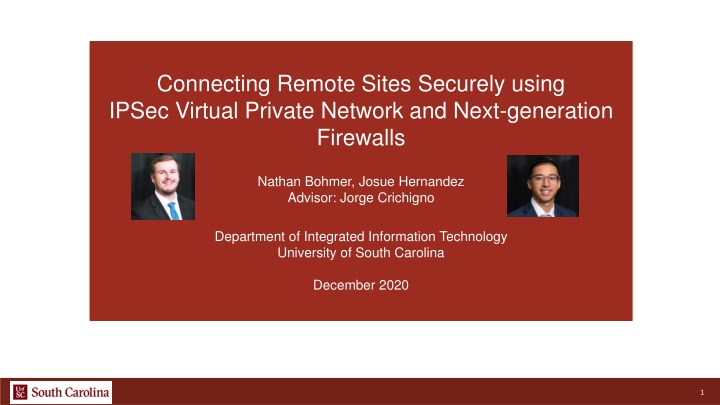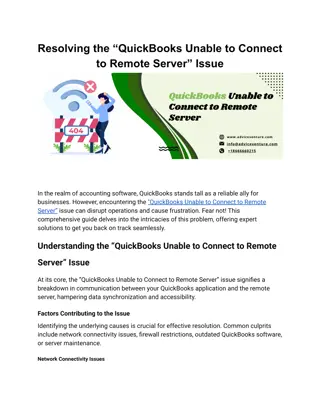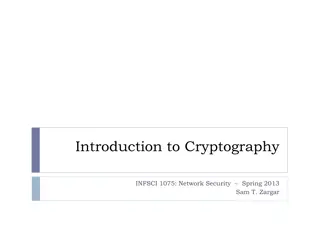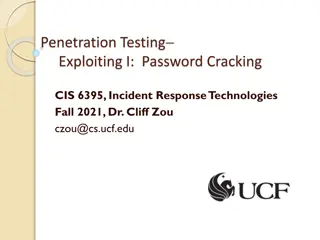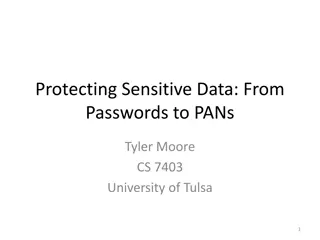Connecting Remote Sites Securely using IPSec VPNs and NGFWs
This project explores the implementation of IPSec Virtual Private Networks (VPNs) and Next-generation Firewalls (NGFWs) to securely connect remote sites. It covers the importance of secure data transmission, configuration of VPNs with IPSec, testing methodologies, and proposed solutions for effective implementation. The study emphasizes creating a secure network infrastructure to facilitate seamless communication between sites while ensuring data privacy and encryption.
Download Presentation

Please find below an Image/Link to download the presentation.
The content on the website is provided AS IS for your information and personal use only. It may not be sold, licensed, or shared on other websites without obtaining consent from the author.If you encounter any issues during the download, it is possible that the publisher has removed the file from their server.
You are allowed to download the files provided on this website for personal or commercial use, subject to the condition that they are used lawfully. All files are the property of their respective owners.
The content on the website is provided AS IS for your information and personal use only. It may not be sold, licensed, or shared on other websites without obtaining consent from the author.
E N D
Presentation Transcript
Connecting Remote Sites Securely using IPSec Virtual Private Network and Next-generation Firewalls Nathan Bohmer, Josue Hernandez Advisor: Jorge Crichigno Department of Integrated Information Technology University of South Carolina December 2020 1
Agenda Introduction Problem description Background information Next-generation Firewalls (NGFWs) IPSec Virtual Private Networks (VPNs) Proposed solution and implementation Conclusion 2
Introduction Secure, encrypted, and private data transmission is important when connecting between two separate sites Virtual Private Networks or VPNs are used to achieve this IPSec Protocol is one method for making site-to-site VPNs The Office of Naval Research and Integrated Information Technology s project is the framework for why this project is being conducted Creating coursework to train the next generation of cyber security professionals 3
Problem Description Connecting two sites to one another directly is a common practice Data transmission between two sites needs to be secure, encrypted, and private Configuring a functioning Virtual Private Network with the IPSec Protocol Testing the Virtual Private Network utilizing the IPSec Protocol 4
Background Information Next-Generation Firewalls (NGFWs) IPSec Protocol components IPSec VPN Testing 5
Proposed Solution and Implementation Develop a VPN using IPSec to connect two sites to one another through an IPSec tunnel Utilize IPSec components to configure the tunnel Develop a lab manual with the concept and configuration of the IPSec tunnel and testing its effectiveness. 6
Conclusion Why is this work important? Future projects/concepts with this knowledge Questions? 7
